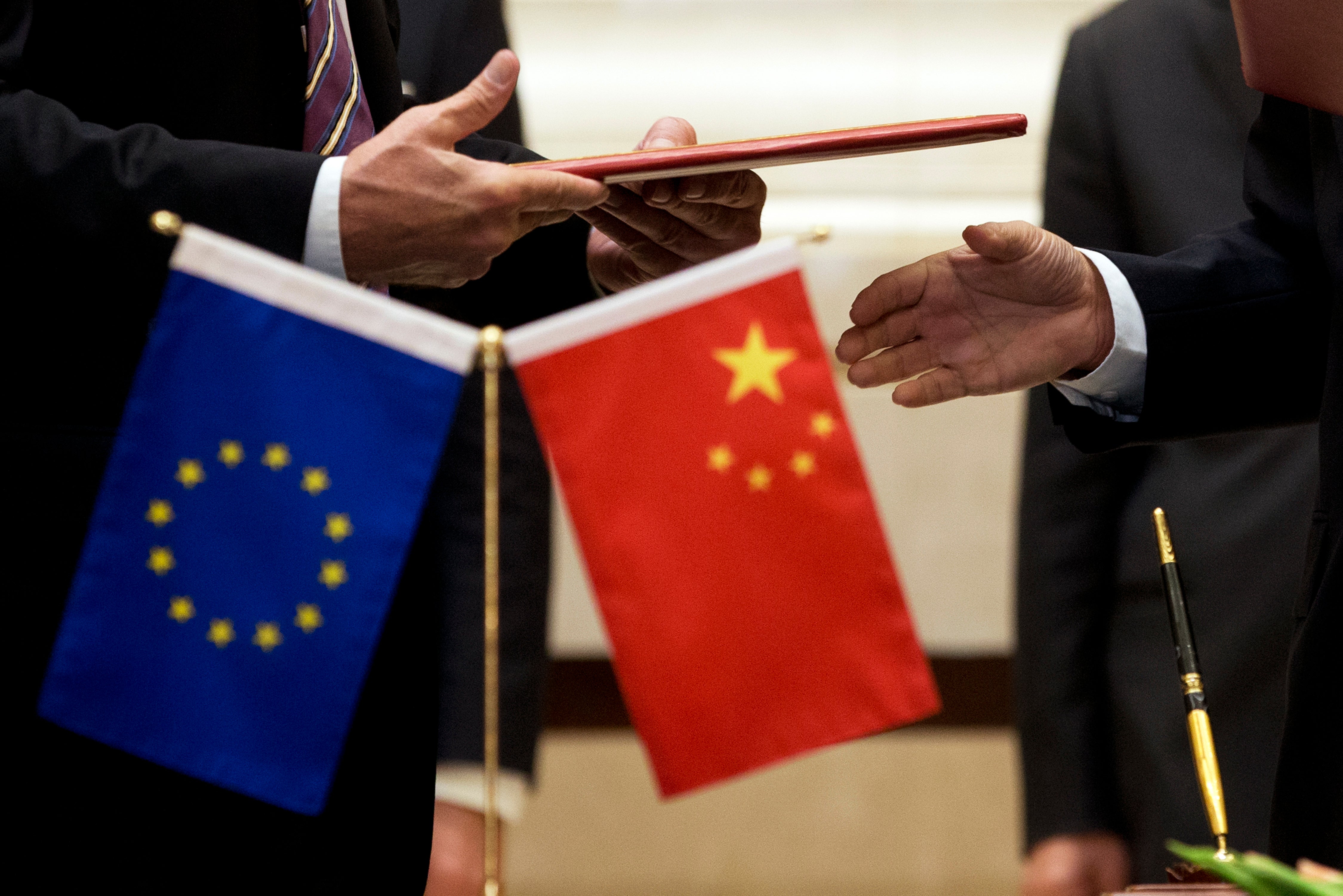China protests EU's investigation of subsidies in green industries, calling the move protectionist
China has accused the European Union of protectionism and “reckless distortion” of the definition of subsidies in response to a new EU investigation into Chinese wind turbine makers

Your support helps us to tell the story
From reproductive rights to climate change to Big Tech, The Independent is on the ground when the story is developing. Whether it's investigating the financials of Elon Musk's pro-Trump PAC or producing our latest documentary, 'The A Word', which shines a light on the American women fighting for reproductive rights, we know how important it is to parse out the facts from the messaging.
At such a critical moment in US history, we need reporters on the ground. Your donation allows us to keep sending journalists to speak to both sides of the story.
The Independent is trusted by Americans across the entire political spectrum. And unlike many other quality news outlets, we choose not to lock Americans out of our reporting and analysis with paywalls. We believe quality journalism should be available to everyone, paid for by those who can afford it.
Your support makes all the difference.China has accused the European Union of protectionism and “reckless distortion” of the definition of subsidies in response to a new EU investigation into Chinese wind turbine makers.
A Chinese trade remedies official made “solemn representations” on the issue in a meeting in Brussels on Wednesday with Martin Lukas, the EU director general for trade defense, the Commerce Ministry said.
“The European side’s reckless distortion of the definition of subsidies, and the lack of openness and transparency in procedural standards during the investigation, is a protectionist act that harms the fair competition environment in the name of fair competition,” the statement said.
The investigation opened by the European Union on Tuesday is the latest against Chinese companies announced in the past two months under a new EU regulation.
The investigation will look into whether Chinese subsidies are giving wind turbine companies an unfair advantage in the competition for projects in five member countries: Spain, Greece, France, Romania and Bulgaria.
“We’re making full use of the tools that we have,” the EU commissioner for competition, Margrethe Vestager, said in announcing the move.
A Chinese business group in Europe described the investigations as “an act of economic coercion” that undermines the EU’s commitment to reducing greenhouse gas emissions.
“This action sends a detrimental signal to the world, suggesting discrimination against Chinese enterprises and endorsing protectionism,” the China Chamber of Commerce to the EU said in a statement.
The EU also announced investigations last week into two Chinese solar panel makers bidding for a 455-megawatt solar park in Romania. An earlier EU probe into the procurement of 20 electric trains in Bulgaria was dropped last month after the Chinese bidder withdrew from the competition.
Vestager, delivering a speech in the United States on technology and politics, called the approach “whack-a-mole” and said the EU needs to address the issue in a more systemic way.
“And we need it before it is too late,” she said, according to a text of her prepared remarks. “We can’t afford to see what happened on solar panels, happening again on electric vehicles, wind or essential chips.”
China thinks the investigations are “targeting an obvious direction,” undermining the confidence of Chinese companies to invest and trade in Europe and affecting global efforts to combat climate change. the Commerce Ministry statement said.
The EU also launched an investigation last October into Chinese subsidies for electric vehicles as exports from China to Europe rise.
China's vehicle exports, including trucks and buses, rose 33.2% in the first three months of this year to 1.3 million units, the China Association of Automobile Manufacturers said Wednesday. Exports of electric vehicles were up 7.3% to 248,000 units. Passenger cars accounted for 1.1 million of the total.
The U.S. treasury secretary, Janet Yellen, raised similar concerns on a recent visit to China. She called for changes in a Chinese industrial strategy that she said has “the potential to flood our markets with exports that make it difficult for American firms to compete.”